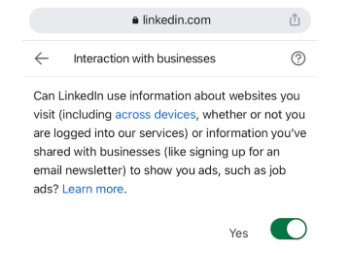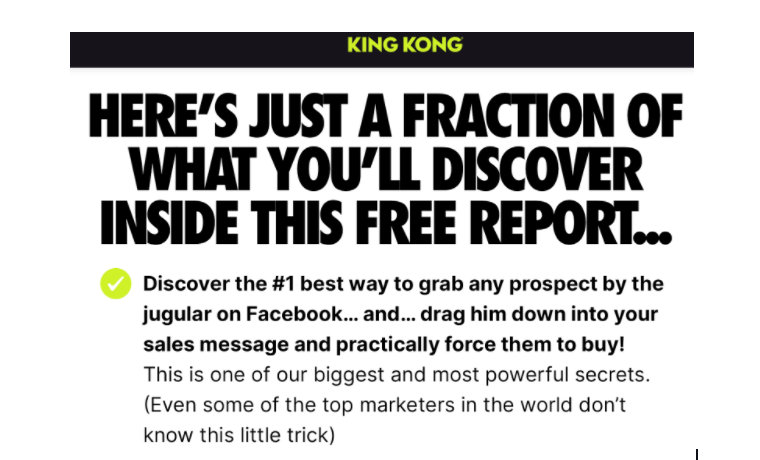You are a slave, Neo. Like everyone else, you were born into bondage. Into a prison that you cannot taste or see or touch. A prison for your mind” – Morpheus, The Matrix.
Do you ever feel like your phone knows too much? That it’s reading your mind, listening to you? You have just passed by a museum, then soon after, ads for the museum’s new exhibition flash up on your phone. You didn’t search for the museum or talk about it to anyone, you just happened to be nearby.
You are not paranoid or delusional; you are simply witnessing the tip of the iceberg in targeted advertising, a lucrative business built on the use – or misuse – of our minds, time, and data without our consent.
Welcome to surveillance-based advertising.
The most worrying part, is that this business is training us to eagerly participate in this monitoring system, for the more we are online, the more we generate profit for others. How did we get to this point? And will we ever be able to “free our minds” and “unplug from the Matrix”?
Every breath you take, we’ll be watching you
Imagine yourself as a business owner. A Facebook executive invites you to a presentation that will blow your mind. This presentation will show you ways to micro-target and advertise to 6.4 million young Facebook users, some as young as 14 years old. You attend the pitch only to find out they are offering you ways of exploiting the psychological vulnerabilities of these young people, reaching them when they feel “worthless”, “insecure”, “stressed”, “defeated”, “anxious”, and like a “failure.”
All of this is done through psychoanalysis, monitoring online activities, posts, photos, and interactions in real-time to track these emotional lows. With this knowledge, algorithms know what ad to show those users, and when to maximise success to get them to click.
It sounds like a very depressing set-up for a dystopian artificial intelligence (AI) film, but this happened in Australia in 2017 and nobody seemed to care. It is an example of how far Big Tech has dove headlong into harvesting large amounts of data from what we share with them and what our online, and sometimes offline, moves reveal about us. Facebook and Google can even track our offline purchases.
Today, we face a powerful machine devouring the bread crumbs we leave behind online and offline. The more we engage with it, the more it learns about us, the more we use our phones – posting, liking, and scrolling – the more we reveal ourselves to this machine, and every crumb matters. The result is scary; the machine can predict our behaviour, even influence it, and cater to it. The line has blurred between what we want and what we are programmed to want.
Humans for sale
In her book, “Surveillance Capitalism”, Professor Shoshana Zuboff notes that the the private human experience is the final frontier of what can be commodified. In 1986, one percent of the world’s information was digitised. In 2013, it was 98 percent.
Surveillance capitalists know everything about us, whereas their operations are designed to be unknowable to us. They accumulate vast domains of new knowledge from us, but not for us. They predict our futures for the sake of others’ gain, not ours.
From the first online banner advertisement by WIRE in 1994 to Google’s cash cow AdWords, digital advertising has become one of the most important forms of advertising. Businesses spent nearly $US356 billion on digital advertising in 2020 – almost a quarter of Australia’s gross domestic product (GDP). In the first quarter of this year, Alphabet Inc., Google’s parent company, reported revenues of $US55.3 billion of which $US45 billion of that revenue came from digital advertisements.
The adoption of Artificial Intelligence (AI) by Big Tech is now making it possible to analyse enormous data sets collected from all data entry points and will accelerate the industry growth even further.
How did it begin?
Back in 1999, the GoTo.com search engine, not Google, came up with the idea of pay-per-click for search results. GoTo search engine would favour the highest bidder to show their links in the top search results, sacrificing the quality of these results. That was their mistake.
Google was soon to follow and introduced a Quality Score model, which took into account an ad’s clickthrough rate when determining its placement on the search results page. The more people searched and clicked through that ad, the higher it would score and the higher it would show on top of other bids.
Google’s algorithm also harnessed the power of the network. The more people used the Google search engine, the more the algorithm learned, the more precise and dominant it became. According to Statcounter, Google has 92 per cent of the market share of search engines in all countries on any device (desktop, mobile and tablet).
By the 2000s, smart phones arrived and social media became the new hot spot for people to engage and express themselves. And with swarms of people concentrated in a few platforms came the opportunity to profile them through their online activities and cater to that. By 2006, Facebook picked up targeted advertising, and things went downhill from there.
Billions of people and businesses joined the platform in the following years, which resulted in billions of dollars of revenue in targeted advertising. Facebook’s now have trillions of pieces of information about users that can be stitched together to understand people’s behaviour and what makes them tick.
Facebook is now also buying information from data brokers, including the user data for those who are not on Facebook to match it with their own data.
How do they get to know you so well?
There are five primary methods of getting to know you so well.
First, the data brokers who make up a multi-billion data mining industry that most of us know very little about. They work quietly behind the scenes. They aggressively to collect personal information from every data entry point, online and offline, including your credit card purchases, government records, loyalty memberships, social media, utility purchases, even your gym membership.
Then, they are ready to buy data from whoever is willing to sell. Most of the time, you have no idea that your data is being collected and sold. So when it felt weird to see that ad for the museum exhibition, most telecommunication companies sell your location too when your phone connects to the telecommunication tower on that location.

The second way they track you is through cookies and tracking pixels. Cookies are like ID tags fed to your browser by the website you visit and cannot be read by other websites. These cookies can have your precise geolocation, device ID, IP or internet address, etc. Initially, websites used cookies to give you a personalised browsing experience.
But Big Tech then turned cookies into a tracking mechanism to log your uniquely identifiable movements online over a long period. This type is called persistent third-party cookies. Again, they track you without your knowledge or permission to put together a detailed profile of you, your movements and your activities.
A 2015 study revealed that by going through the 100 most common websites, your computer would gather more than 6000 of these cookies. The study also discovered that 83 per cent of the cookies came from third parties. Not surprisingly, Google’s cookies were active on 92 of the leading 100 websites. When checking my own computer, I found that Yahoo! alone had 450 third-party cookies waiting to be downloaded on my browser and track me once I visited that one site.
The other way they cosy up to you is through tracking pixels or web beacons. A tracking pixel is an invisible image in the emails you get, and it will tell the sender if you have opened the email or not and then share your location. This also helps advertisers measure the success of their marketing campaign.
But just the fact that they can use this without my knowledge and get my location is a frightening proposition. Imagine the damage this could do in the wrong hands. Arguably, this trick can also be used to determine if someone is at home or not. (You can disable downloading images on your emails to stop these tracking pixels).
The third method of getting to know you is through browser and device fingerprinting. Fingerprinting in tech language is a way of identifying users based on information that your device or browser is giving away when you go online.
Fingerprinting was initially used for security purposes to help websites prevent fraudulent activity and software piracy. But it is now also used to successfully identify users 99 per cent of the time. Even if you disable cookies and use private browsers like Brave or Tor, fingerprinting will evade that and identify you again to “re-cookie” you.
The fourth method of finding out more about you is algorithms. With a large amount of information shared every minute online, algorithms come to sort this information and serve you what the algorithm thinks will keep you engaged and interested. The more you are online, the more you train these algorithms. Algorithms learn and adjust, can be altered and tweaked, and can become complicated and mysterious, even to the point where they become too much for the algorithm developers.
Finally, Big Tech collects the most personal information about you through the devices you have while you are not using them. Amazon’s Alexa and Google’s Assistant, even Google’s Pixel, are a few examples of clever hardware and software that listen, learn and track you, even while you sleep.
A message from a digital marketing company to its potential advertisers.
Sean Parker, ex-Facebook president, warned that Facebook:
Literally changes your relationship with society, with each other. It probably interferes with productivity in weird ways. God only knows what it’s doing to our children’s brains.
In his own words, he said they wanted to know “How do we consume as much of your time and conscious attention as possible?” and went on to lament that we are all “jacked into this system, all of our minds can be hijacked. Our choices are not as free as we think they are”.
Manal talks with Phillip Adams Pegasus on Radio National
Manal al-Sharif is an author, speaker, human rights activitist and a regular contributor to international media. She has written for the Time, the NY Times and Washington Post. Her Amazon bestseller memoir, Daring to Drive: a Saudi Woman's Awakening, is an intimate story of her life growing up in one of the most masculine societies in the world.
Manal is a cybersecurity expert and host of the tech4evil.com podcast that discusses the intersection of technology and human rights.

